Semrush vs Ahrefs vs Moz: An Honest Marketer's Guide
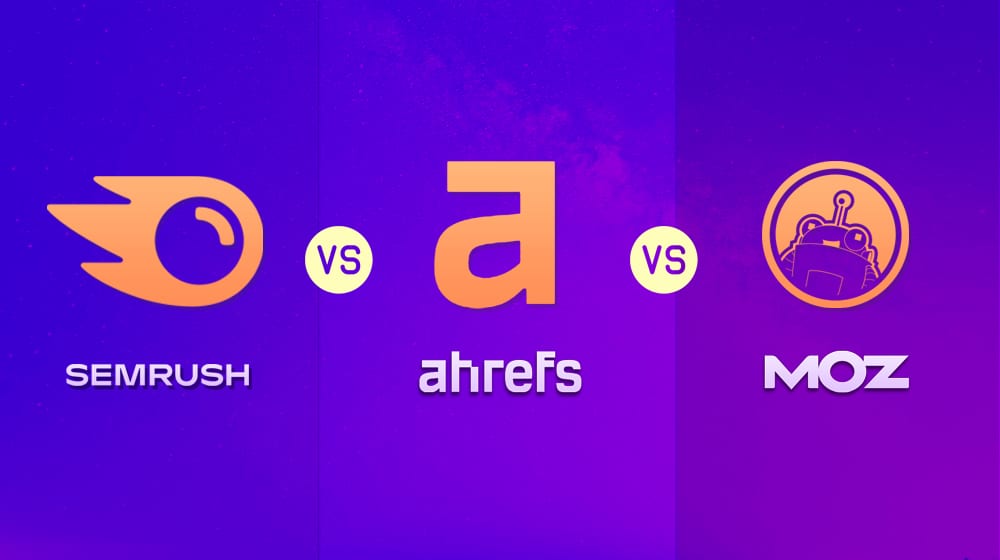
Three names come up repeatedly in the world of keyword trackers and other digital marketing tools. Semrush, Ahrefs, and Moz are the giants, and no other platforms come close. I've used all three of them, and I have to say, I have some opinions, but to me, there's one clear winner. The question is, which one is better?
Before we get to that, though, let's start at the beginning.
What Are These Applications?
You've probably heard of Semrush and Ahrefs and Moz before, but do you know what they are? Or are you like I was just a few years ago? I knew of them back then, but I had never used them every day like I am today. Today, I'm very comfortable with all three tools and may be able to share some thoughts on how I feel about each of them.
There are three schools of thought when using tools, programs, and marketing applications.
1. The first is:
"I can do it all myself. I don't need anything beyond my wits, my pile of spreadsheets, and Google."
These people get overworked and underperform very quickly.
2. The second is:
"If I need to accomplish a task, I'll find the best tool for the job and use it."
Need a keyword tracker? Need a content marketing optimizer? Need a rank checker? These folks find different tools for each task and use those. The most significant downsides are pretty obvious:
- The tools don't always work well together, so there may be a lot of data importing and exporting or just data entry into unrelated spreadsheets.
- It gets costly very quickly. Even if every tool is $100 a month, that's still $1000 a month for ten SEO software suites, and some of these tools can be quite expensive indeed. Semrush is $120/mo, Ahrefs is $99/mo, and Moz is $99/mo.
3. The third school of thought is:
"I don't want the best SEO tool for everything; I want a tool that does everything."
These people look for one or two centralized tools with a hundred different valuable features. The goal, of course, is to keep everything as centralized on a single platform as possible. Ideally, if more than one platform needs to be used, they can link to each other via API, and only one needs to be actively used.
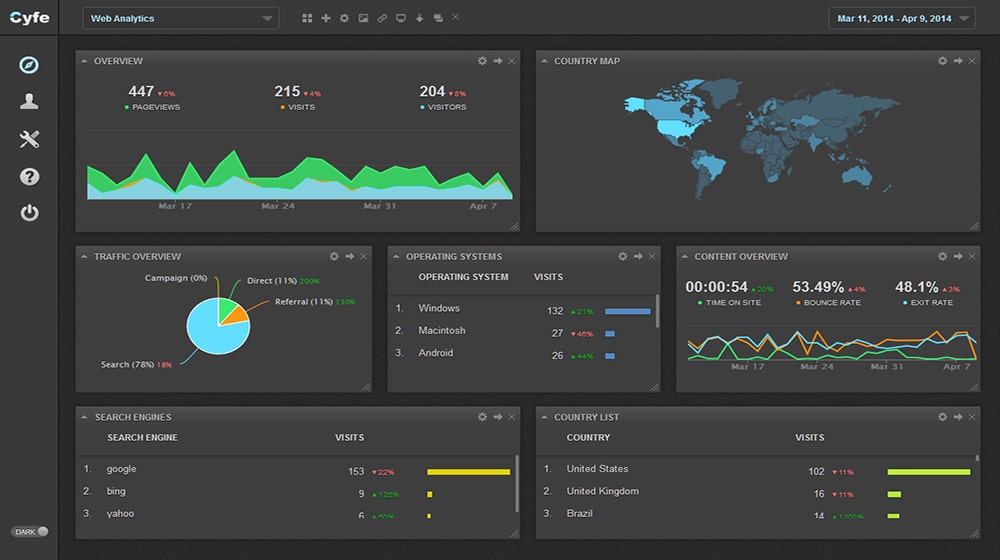
Frankly, though, I probably fall into the second category, though I try to consolidate as much as I can. And, indeed, this consolidation is what Moz, Ahrefs, and Semrush all try to do. What, though, do they cover?
- Link building and backlink analysis for both you and your competitors.
- Competitor analysis for links, keywords, and content.
- A keyword research tool, difficulty, and other metrics.
- Rank tracking. I've written about this one before.
These applications are primarily used for gathering data; about the industry, your competitors, and yourself. They aren't used for more technical SEO; they don't tell you if you have poorly-optimized metadata, what schema tags you should use, or any of that. There are other good platforms for that.
Now, let's dig into whether or not they are user-friendly, the ease of use, and the functionality of each toolkit.
Semrush: Features and Benefits
Let's start with the Semrush features. What is it, and what does it do for you?
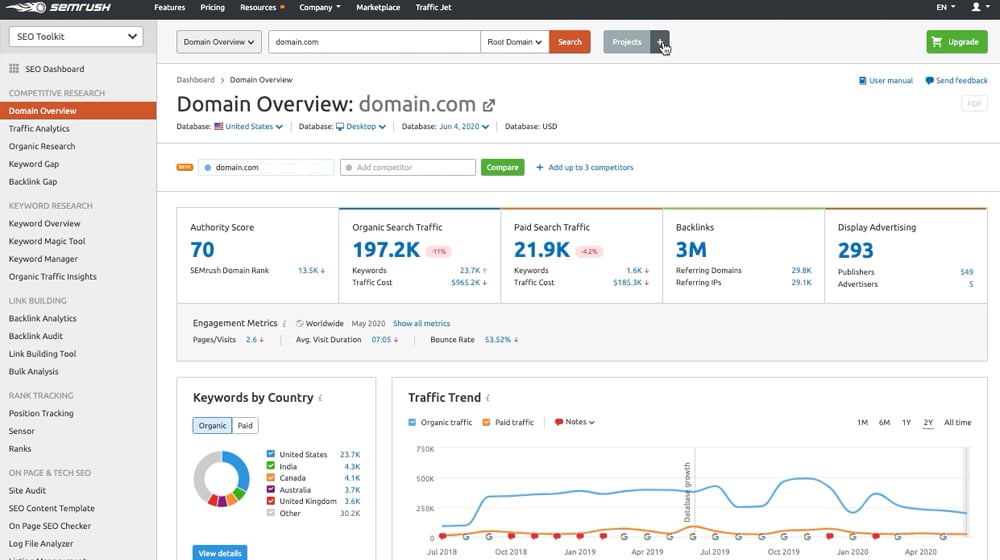
Semrush started life as a Firefox extension back in 2008 and has gradually grown and improved since then. These days, they are a powerhouse in SEO tools.
- The Keyword Magic Tool helps with keyword research. Semrush helps you with keyword suggestions to target and tracks your performance on those you already target. Semrush can also estimate keyword difficulty so you can be sure that you're picking a fight that you can realistically win.
- Content analysis. While Semrush isn't as robust as Clearscope, Semrush has some good content suggestions.
- Competitive research. Plug in a URL of a competitor and get a full report of data about their site. You can pull your competitor's organic and paid keywords and top content. Semrush can also identify competitors for you by analyzing your site.
- Advertising monitoring. Semrush isn't just tracking organic data; they monitor ads too.
- Social media management. Typically I prefer a different tool for dedicated social media management, but Semrush does it pretty well.
These features are powered by the data they harvest from around the web.
That data – their index – is similar to something like Google's search index, except obviously a lot smaller. Google's index is massive. No company smaller than Google can hope to scrape even a fraction of what Google does. Semrush does an excellent job of trying, though. According to their stats page, they track 20 billion keywords all told, with 2.6 billion of them in the United States. They've scraped and accumulated 43 trillion-with-a-T backlinks to analyze. They've covered nearly 60 million US-based domains and 160 million keywords for domain analytics.
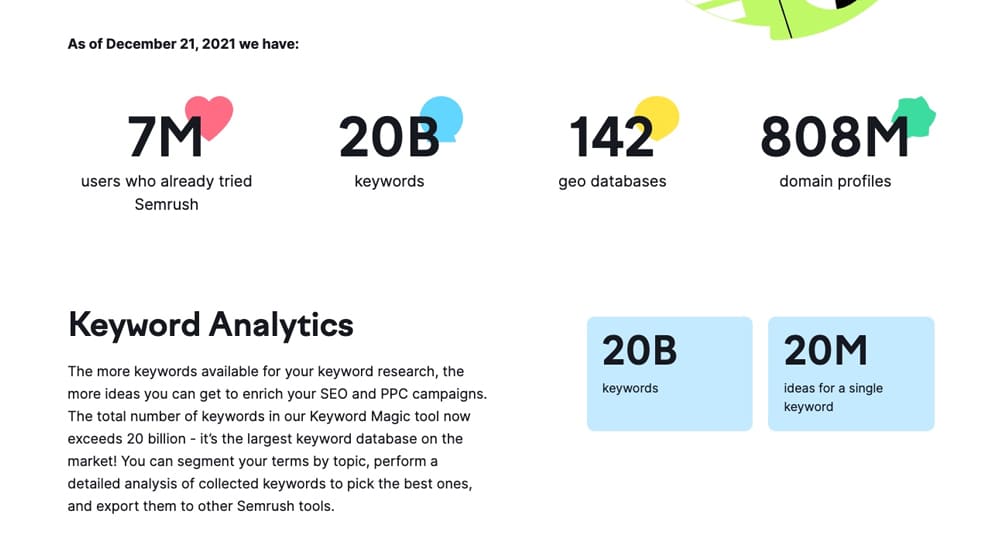
It's a lot of data! Estimates put it at around 500 terabytes of data and given that the majority of that is short text strings and associations, that adds up to a ton of very dense information.
Semrush pricing starts at $120 per month, with additional upgrades like local listing management, extra users, and the Semrush trends engine. The complete package with everything they offer would be well over $600 per month.
Moz: Features and Benefits
Moz is one of the giants in SEO and marketing. Their blog is one of the best in the business, and I constantly learn new things from what they write. Their experiments, their data harvesting, it's all beneficial.
One of Moz's primary business offerings is what was formerly known as OSE, or Open Site Explorer. These days they've fragmented it off into various tools like the Link Explorer, Keyword Explorer, and their overarching Moz Pro.
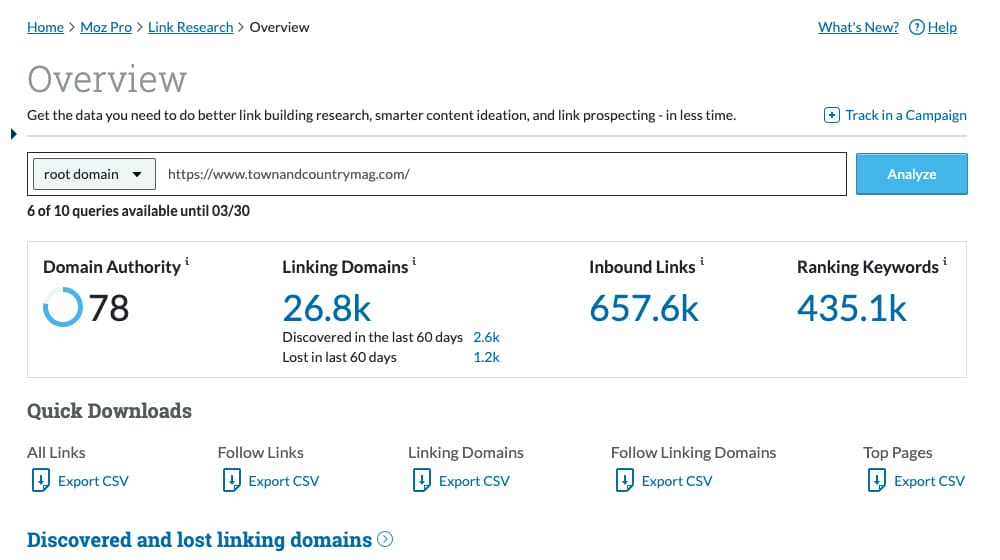
With Moz, you can plug in a keyword (they track around 500 million) and get a detailed report about it. They can give you information like keyword search volume, related keywords, SERP details, domain authority, page authority, and more.
Moz's pricing starts at $100 per month and goes up to $600 per month for their premium agency-level and enterprise offers.
I'll admit that Moz has some helpful features, and the convenience of their MozBar is pretty high. On the other hand, their data index is smaller than the others, and I just haven't found them as useful in my experience. They aren't bad, but they aren't my first choice.
Ahrefs: Features and Benefits
Ahrefs grew as a backlink analysis program and was primarily competing with the likes of Majestic for backlink analysis. Over the years, though, they've expanded dramatically into many other valuable features for marketers like me.
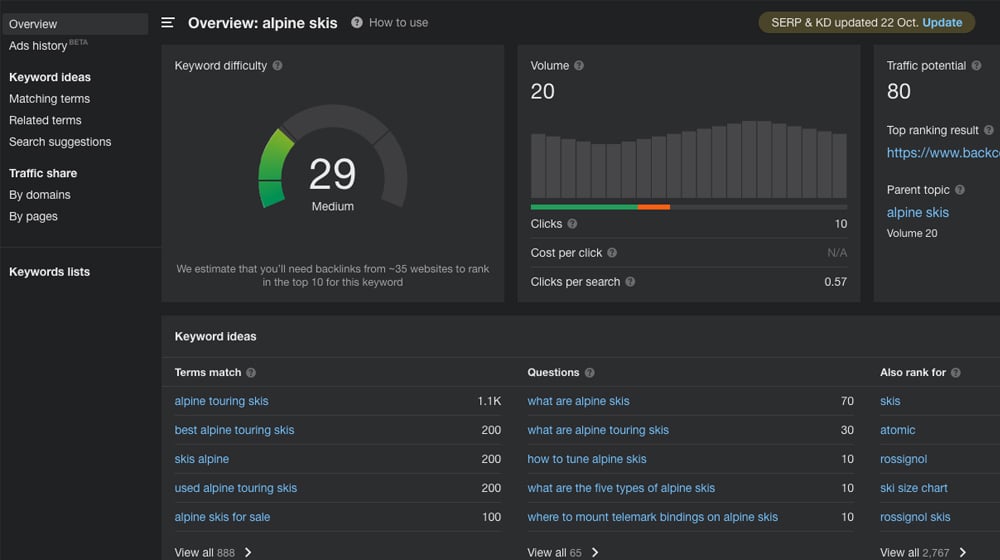
These days, they offer:
- Site audit tool. I know I said technical SEO was the domain of other software on this list, but Ahrefs does a pretty good job at giving it a shot with their technical audit tool. It helps you spot on-page issues such as broken links, redirect chains, orphan pages, and more. It's a good idea to get as close to a perfect 100/100 as possible. It takes a while for their SEO checker to perform a complete site crawl, so if you have a large website, give it some time to finish scraping your site.
- Site explorer. Their competitive analysis feature, this tool gives you a fairly comprehensive report on any website.
- Keyword analysis. Ahrefs can track target keywords and your rankings for them, what keywords are most relevant to your domain name (or a competitor's), and more.
- Content analysis. Again, perhaps not to the same level as something like Clearscope, but they can show you the most popular content for a given keyword so you can do the legwork yourself.
- Content explorer. This analysis tool helps you show how your competitor's websites are ranking, how much organic traffic they get, how large their site is, and how many links those web pages have. It can be handy for quick competitive research, but since blog posts tend to rank for hundreds of keywords, I wouldn't disqualify blog posts topics based on the stats of individual keywords. Looking at "Top pages" and evaluating which page has the most traffic by the total percentage is a better competitive metric—more on that in a bit.
- Backlink checker. It shows you a website's top backlinks, as well as any new or lost links. This functionality is another feature where Ahrefs shines - backlinks tend to show up in Ahrefs faster and more accurately than any other tool I've used.
- It has detailed click data. Search volume is one thing, but if it's a query where Google's knowledge graph eats up most of the traffic, it might have a meager click volume and thus not be worth the effort. How else can you find that out?
- Keyword rank tracking. A standard feature, of course.
- Top pages. This section is available in two areas: the new "Top pages" section and the legacy one. I like using this to quickly determine which pages have the highest percentage of the organic search traffic for a domain. It's also a great place to find keyword ideas and build up your keyword list for your marketing strategy. It's hard to go wrong when you're competing with pages that you already know are performing well and have strong traffic.
The main drawback for the Ahrefs feature list is that, unlike Semrush, they don't cover PPC data. That's fine; it's relevant and essential data if you're running many PPC campaigns, but if you're not, you don't need it cluttering up your results.
Ahrefs has a lot going on. Their server complex is second only to Google in size and activity. They have petabytes of data, crawl and update half a billion records every day, and have 170 trillion rows of active data. Semrush is huge, but Ahrefs blows them out of the water.
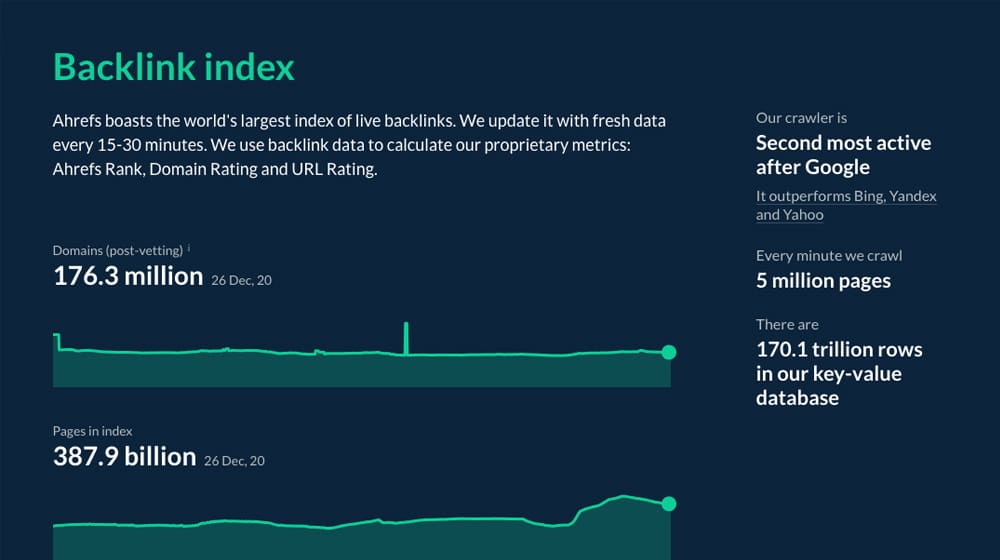
Pricing is comparable to the other two, of course. Ahrefs start at $100 per month for Ahrefs Lite and scale up to $1,000 per month, though their cheapest plan is a lot less limited than the beginner plans for the other two services. They also don't have a free trial – it's $7 for a seven-day trial – but they do have some trial versions of some of their tools available for free.
My Experience and Preference
When I was first looking for one of these great tools to try out, all three of these came up on my searches. I have since tried out all of them.
Ahrefs was the first, primarily because of that link up above. Billing themselves as a larger scraper than Bing, a leading search engine and the second-largest scraper in the world, is a tall claim, but they've lived up to it. I hesitate to say I "fell in love" with the tool – both because I don't do that and because it's a little tricky to get the hang of using it effectively – but that's the case with all three of these tools.
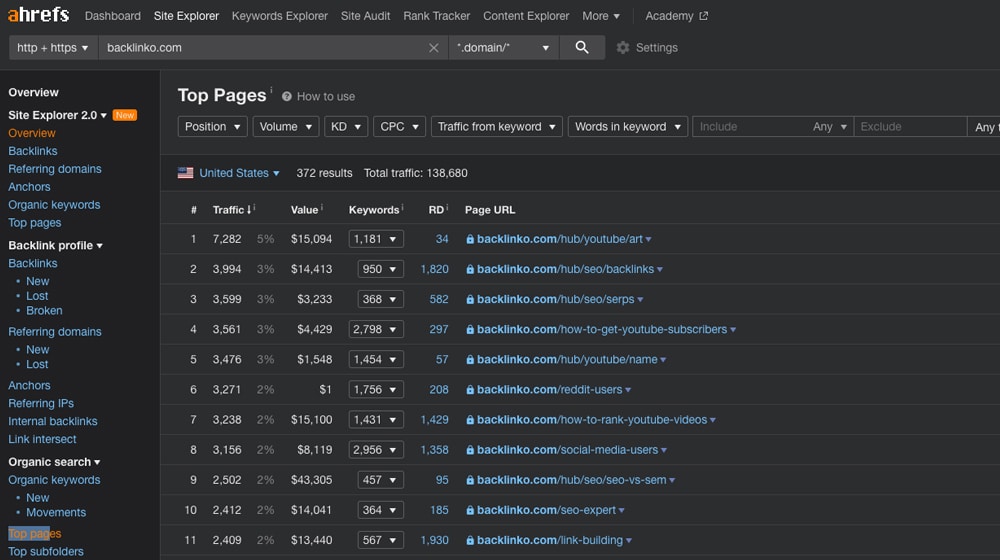
Moz; I love you guys as a blogger, and you publish great content, but your platform isn't for me. I'm sure you have plenty of users who get a ton of value from what you have to offer, but I found it a little too slow and small compared to Ahrefs and Semrush.
Semrush is pushing to give Ahrefs a run for their money. They've been investing pretty heavily in their index, but they're still small potatoes in comparison. It's frankly pretty astonishing how Ahrefs has managed to do what they've done.
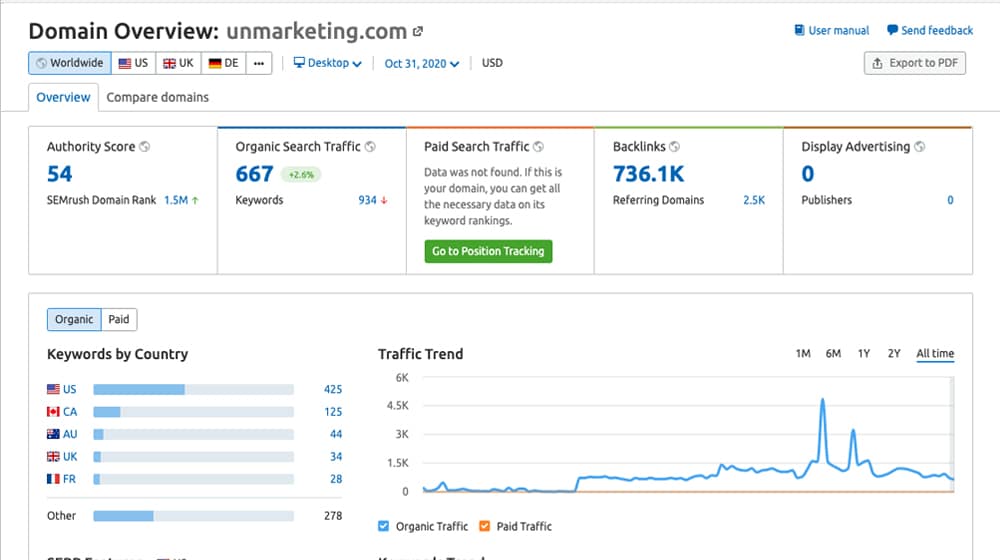
I like most about Ahrefs' link analysis, which makes sense since it's all in their name and the feature they started with.
What I found, in general, is that Semrush is good at giving you a lot of data, but that data is often less relevant than you might hope. Searching for a single domain might give you 10,000 keywords on Semrush and only 2,000 on Ahrefs. It sounds like Semrush is the clear winner, right? Well, not really. Many of those keywords will be trivial variations on one another, or won't be very well related, or will have next to no search volume. In other words, while it might be a lot of data, it's not necessarily valuable for you to have.
The main area where Semrush pulls ahead is if you're researching paid advertising. As I mentioned above, Semrush does product listings and paid ads, while Ahrefs only does organic data. I suspect that's part of how Ahrefs can keep laser-focused on building their index the way they are; PPC ads change course faster than organic content does and require different kinds of processes to index appropriately.
I've also noticed some odd blind spots with the link analysis in these tools. Ahrefs is very good at picking up a new link and showing it to you within a day, while Semrush might take a little longer and sometimes misses links. Semrush often offers you low-quality links, too, while ignoring the occasional high-profile link. It makes me wonder if some sites have blocked Semrush robots.
My Verdict
That said, all three platforms have their strengths. If I shifted focus and aimed more into paid advertising, I'd use Semrush in a heartbeat. Moz, meanwhile, has strengths with technical and onsite SEO auditing. Ahrefs is primarily focused on organic search, SEO, and links. It also has plenty of technical and onsite SEO audits with an impressive link database.
My recommendation is Ahrefs. For you, though? Well, that depends on what you need out of your tools. Let me know what you think about the tools if you've used them and why you've chosen the one you have.




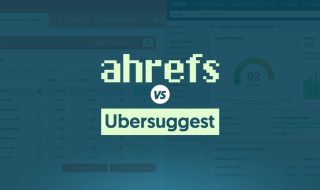
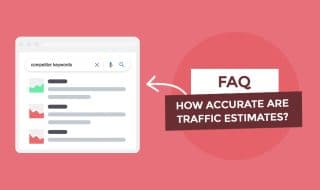
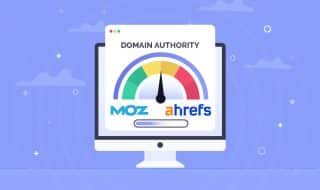
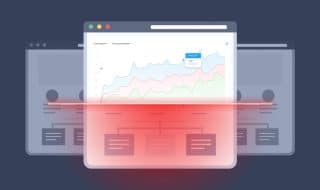


February 28, 2022
As much as I love Ahrefs, I switched to Semrush and it's a way better fit for me. Although that could be because we're focused on paid advertising. I guess it really depends on what you need.
March 04, 2022
Hey Milly!
Thanks for letting us know and for sharing your use case. They're both excellent; you can't go wrong either way 🙂